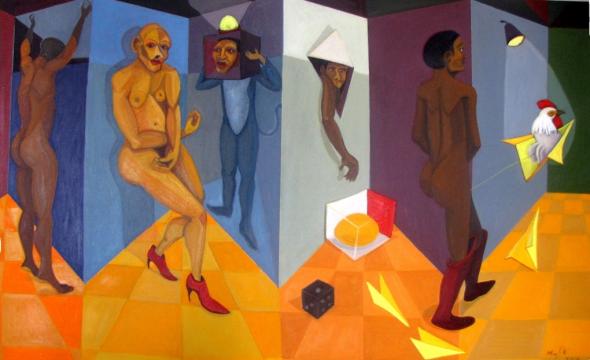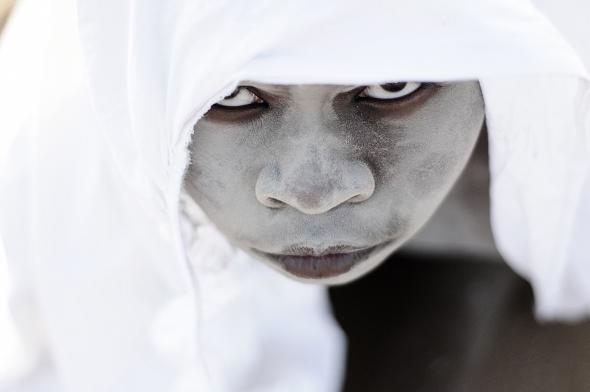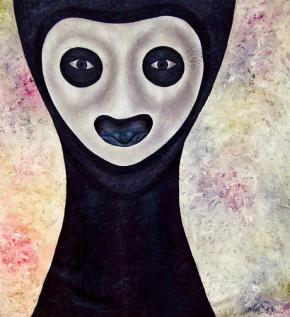Does Racism Begin Where Culture Ends?
Of all former colonial powers, Portugal remains one of the countries where the debate around racism is less clarifying, since it is grounded on a historic chimera in which, according to luso-tropicalism, also a historic hoax construction, Portuguese colonialism is compared to other colonial violations as the most generous and least violent. Such premise rooted on a fallacy of history, embedded with a mixture of political hypocrisy and cynicism, has solidified, making it difficult to conduct a serious and frontal debate about racism. In Portugal, racism and its denial are structural elements in the ideological confrontation about the location of difference in a potentially and structurally racist society, because it is a structural and historically colonial one.
In its current 2015 editorial agenda, SOS Racismo intends to discuss the diversity and plurality of pivotal themes, not only in order to analyze the culture of racism, but also and mainly, to observe how cultural racism uses other theoretical and political tools to achieve social and political legitimacy.
Departing from the conviction that racism is neither a fatality nor a natural and immutable characteristic against which nothing can be done, our commitment is to fight it in all its means of expression.
We know that racism is the social, cultural and political result of eurocentrism, which created the need to mark, distinguish and separate racialized ethnic groups of the human community, on the basis of skin color and/or culture. The main leverage associated with this dehumanizing enterprise of racialized ethnic groups was set on the power to construct myths that have always justified racism. In that regard, far from constituting a mere repository of unconscious and harmless prejudices, as it is often made believe, the analysis of the political situation, with the strengthening of fascism and the rise of the far right in Europe, demonstrates that racism remains at the junction of contemporary institutional political practices and the slavocratic, imperial and colonial ideologies. Romaphobic and negrophobic racism, as well as declared or difused islamophobia, are institutions resulting from the philosophical and political traditions that considered, and still do, blacks, gypsies and all other “non Europeans” as inferior.
 'Something on Every Turn', de Richard Mudariki (Harare)
'Something on Every Turn', de Richard Mudariki (Harare)
Through the centuries, in Portugal as in western civilization in general, ideological racism has consolidated and deepened into institutional racism, which legitimated, and still does, sociological racism, or more, cultural racism. Before, during and after the slavocratic and colonial violations, racism always maintained the same characteristic feature of denying humanity to a substantial part of the human race. And for a long time, there was a thin line between the culture and the policies building institutional racism. Either culture justified policy, or the other way around. The political organization and cultural cataloguing always sustained state racism, euphemistically called institutional racism. For example, in 1926 the indigenous charter (Estatuto do Indigenato) stated: The indigenous are not granted, for lack of practical significance, the rights pertaining to our constitutional institutions. We do not submit their private, domestic and public lives, […] to our political laws, our administrative, civil, commercial and penal codes, our judicial organization. Three years later, in 1929, the second article of the charter, specified clearly after review: individuals of the black race and their descendants, born or living in the colonies, who don’t yet have the illustration and the individual and social habits required of Portuguese citizens by public and private law.
The culture essence of current romaphobia is similarly as old as a royal decree dated from 1649 about the gypsies, which stated: I, the King ….. for understanding the great loss and uneasiness suffered by the kingdom in regards to a rambling people, called gypsies, who form gangs and live of robbing and tricking the service of God and my own. Other orders by the kingdom, by means of many laws and provisions, sought to extinguish the name and ways of these gypsy vagabonds with prisons and beatings, banishments and exiles, without result; and lately, wanting I to banish all sorts of ways and memories of these tramps, with no home, nor laws, nor churches, nor settlements, nor livelihood apart from robbing, I ordered that in all the kingdom they are arrested and brought to this city [Lisbon], where they will be shipped, divided and taken for service in the conquests…
Gypsies were punished with beatings and shipped for ten years to the colonies just for being gypsies, as expressed by a royal decree dated from the 18th century: I order that in this kingdom there is no person of either sex, using the costumes, language or objects of the gypsies, nor their trickeries so called “buenas dichas”; and besides, that the so-called Gypsies, or people they relate to, do not live together in more than a maximum of two houses per street, that there aren’t 37 together on the roads, or settled on them or in the fields, nor will they deal in selling or buying, or trading of animals, but that in clothing, tongue and way of life they be like other people in the land; and those who do otherwise, even those with no previous penalty, will be beaten and banished for ten years; men will be banished to the ships and women to Brazil.
 Paz, 'The Zionist Series',de Mario Macilau (Maputo)
Paz, 'The Zionist Series',de Mario Macilau (Maputo)
The strengthening of the far right in most of Europe and all the recent racist episodes in Portugal, the latest one being the racist approach by the police (PSP – Polícia de Segurança Pública) at Vasco de Gama shopping center against black youths, objectively leads to the conclusion that we cannot speak of racism in the past. Because racism, not only has not ended, it still remains well-present today. And because unfortunately, behind each administrative act, each legislative initiative and each political decision about ethnic minorities, we find “racism as the wild shelter of European humanism, its beast” covered with “the dark veil of skin color” or cultural difference.
The Enlightenment and Universalism are usually presented to us as historic, political and cultural moments of catharsis, which elevated the demands of a radical and uncompromising humanism, against savagery and civilizational backwardness. Nothing farther from the truth! Of all classics produced during that period, from Kant to Hume, Hegel, Tocqueville, Montesquieu, Comte, Durkheim and so many others upon whom contemporary political models rely, none escapes the premises of racism. All believed in the civilizational and cultural superiority of Europeans. “I suspect Negros and, in general, other human species, to be inferior to the white race. There was never a civilized nation like the white color ….” wrote Hume.
On his turn, Kant, in his Observations on the Feeling of the Beautiful and Sublime (1764), said: “The Negroes of Africa have by nature no feeling that rises above the trifling. Mr. Hume challenges anyone to cite a single example in which a Negro has shown talents and asserts that among the hundreds of thousands of blacks who are transported elsewhere from their countries, although many of them have even been set free, still not a single one was ever found who presented anything great in art or science or any other praiseworthy quality, even though among the whites some continually rise aloft from the lowest rabble, and through superior gifts earn respect in the world. So fundamental is the difference between these two races of man, and it appears to be as great in regard to mental capacities as in color. The religion of fetishes so widespread among them is perhaps a sort of idolatry that sinks as deeply into the trifling as appears to be possible to human nature. A bird’s feather, a cow’s horn, a conch shell, or any other common object, as soon as it becomes consecrated by a few words, is an object of veneration and of invocation in swearing oaths. The blacks are very vain but in the Negro’s way, and so talkative that they must be driven apart from each other with thrashings.”
In September of 1956, in the First Congress of Black Writers and Artists in Paris, Frantz Fanon opened his talk, promptly entitled “Racism and Culture”, in the following manner: “A reflection on the unilaterally decreed normative value of certain cultures deserves our careful attention. One of the paradoxes immediately encountered is the rebound of egocentric, sociocentric definitions. There is first affirmed the existence of human groups having no culture; then of a hierarchy of cultures; and finally, the concept of cultural relativity. We have here the whole range from overall negation to singular and specific recognition. It is precisely this fragmented and bloody history that we must sketch on the level of cultural anthropology. There are, we may say, certain constellations of institutions, established by particular men, in the framework of precise geographical areas, which at a given moment have undergone a direct and sudden assault of different cultural patterns. The technical, generally advanced development of the social group that has thus appeared enables it to set up an organized domination. The enterprise of deculturation turns out to be the negative of a more gigantic work of economic, and even biological, enslavement. (…) The doctrine of cultural hierarchy is thus but one aspect of a systematized hierarchization implacably pursued. (…) To study the relations of racism and culture is to raise the question of their reciprocal action. If culture is the combination of motor and mental behavior patterns arising from the encounter of man with nature and with his fellow-man, it can be said that racism is indeed a cultural element. There are thus cultures with racism and cultures without racism.”
Biological racism that justified slavocratic and colonialist violence was born out of the “lights” of Enlightenment and Universalism. Among other futilities, Hegel’s philosophical comments proved that: “In Negro life the characteristic point is the fact that consciousness has not yet attained to the realization of any substantial objective existence – as for example, God, or Law –in which the interest of man’s volition is involved and in which he realizes his own being. […] The Negro, as already observed, exhibits the natural man in his completely wild and untamed state. We must lay aside all thought of reverence and morality – all that we call feeling – if we would rightly comprehend him; there is nothing harmonious with humanity to be found in this type of character. […] The undervaluing of humanity among them reaches an incredible degree of intensity. Tyranny is regarded as no wrong, and cannibalism is looked upon as quite customary and proper. […] Among the Negroes moral sentiments are quite weak, or more strictly speaking, non-existent.”
 'S/ Título', de Anthony Okello (Nairobi)
'S/ Título', de Anthony Okello (Nairobi)
Augusto Comte asked in one of his intellectual classic essays gathered in the work Course in Positive Philosophy: “Why does the white race possess in so marked a manner of privilege of the chief social development, and why has Europe been the theater of that development?[iv]” Comte himself doesn’t hesitate to answer: “No doubt, on the question of agent, one can see in the characteristic bodily organization of the white race, and above all in its brain, some germs of its superiority”.
Racism is also evident in the work of Tocqueville, who in, “Democracy in America”, characterizes America in a racist manner. Analyzing “The Present and Probable Future Condition of the Three Races that Inhabit the Territory of the United States”, he said: “the first that attracts attention, the superior in intelligence, in power, and in enjoyment, is the white, or European, the Man pre-eminently so called, below him appear the Negro and the Indian. These two unhappy races have nothing in common, neither birth, nor fea- tures, nor language, nor habits. Their only resemblance lies in their misfortunes. Both of them occupy an equally inferior position in the country they inhabit; …” And he continues further in the text “The modern slave differs from his master not only in his condition but in his origin. You may set the Negro free, but you cannot make him otherwise than an alien to the European. Nor is this all we scarcely acknowledge the common features of humanity in this stranger whom slavery has brought among us. His physiognomy is to our eyes hideous, his understanding weak, his tastes low; and we are almost inclined to look upon him as a being intermediate between man and the brutes.”[v]
In fact, and according to these few, for lack of space, short excerpts reflecting the thoughts of some of Europe’s most important thinkers, we can make the underlying connection between state racism policies, known as institutional racism, and the culture of racism in European society. There is an umbilical cord connecting contemporary racism to European culture. Edward Said was complaining about it when he stated: “philosophers may argue about Locke, Hume and empiricism without ever taking in consideration the explicit connection, among those classic authors, between their “philosophical” doctrines and racial theory, the justifications for slavery and the defense of colonial exploration”. By the same token, Said added that “because of that, many professional humanists are incapable of establishing the connection between, on one hand, the long and sordid cruelty of practices such as slavery, racial and colonialist oppression, imperial domination, and, on another hand, the poetry, the fiction, and the philosophy of a society that adopts such practices”. Consequently, humanity was divided on the basis of “a hierarchy of the races that dehumanized” another people and their cultures.
In the mid-1950’s, before Edward Said, and with his inherent clarity and honesty, Frantz Fanon had already said: “In reality, a colonial country is a racist country. If there are still racists in England, in Belgium or in France, despite the democratic principles laid out by these respective nations, those racists, in their opposition to the country as a whole, are the ones who are logically consistent.” That is to say that in spite of the circumstantial cynicism and the hypocrisy of the conventions emanating from the rhetoric of democracy, racism survives, because racism is a component of the current regime’s ideological matrix.
Therefore, it is evident that discriminations are political constructions operating as social control mechanisms, by way of the diminishment, the stigmatization and the normalizing and castrating homogenization of the right to difference.
Against “non-European” ethnic groups, against difference and with an hegemonic homogenizing agenda, we are witnessing the demonization of cultural values, ways and examples of life, such as language, clothing, techniques and forms of relating to the world. “Non-European” cultures are devalued and threatened with destruction, and often actually destroyed. At another time, in that regard precisely, Fanon said: “The reproach of inertia constantly directed at “the native” is utterly dishonest. As though it were possible for a man to evolve otherwise than within the framework of a culture that recognizes him and that he decides to assume.” The fact remains that the accusing rhetoric of cultural inadequacy manifested by a supposed “refusal” and/or “incapacity of social integration” from foreign derived communities, results from a strategy of marginalization of difference. The frequent accusation directed towards ethnic minorities, of their lacking of urbanity and civility – namely gypsy communities, immigrants and their African culture descendants, Asians, and/or of the Muslim religion -, is the shelter of cultural essentialist stigmatization.
From biologization to essentialization, racism has adapted to the times and its narratives, having for aid multiple instruments and means of expression. The situation of economic, social and political vulnerability sharpened cultural exclusion: it is as if communities lived in “clandestine identity”. Their presence in the public space is practically non-existent and, when it occurs, it always happens on a clearly subaltern level. In this respect and in more generic terms on cultural marginalization and the struggle for the right to cultural acknowledgement, Stuart Hall said, for example when speaking about the role that music has in the assertiveness among communites, that music is a symbol of the “sound of what cannot be”.
The reality is that the rhetoric of diversity from a political point of view, not only corresponds to reality, but it hides something else: the majority of European countries maintains a colonial and racist relationship with its immigrant communities and those of “foreign” origin.
For example when, in an arrogant and imposing manner, European countries insist that immigrants must learn the language spoken in the host country, what they suggest is that those are the only tools allowing them to, not only learn the social and political codes of their new contexts and habitas, but mainly that their native languages do not permit nor they are able to construct such codes. Which is false, because not only those languages can (and have) create such codes, but they have also demonstrated that they are able to reappropriate and adapt them to their cultural values of origin. The proof of this capacity for reappropriation and cultural recycling is the manner with which second generations are able to construct a political and cultural space from where to reclaim their cosmopolitan sense of belonging, through music, urban art and alternative sports. In fact, it’s not by accident that the nuisance created by urban and suburban culture, due to the refusal of hegemonic cultural homogeneity, is printed in the sermons about urbanity and civility and in the rhetoric around national identity. Because, “identity only becomes a question when it’s in crisis, when something supposedly fixed, coherent and stable is dislocated by the experience of doubt and incertainty.”
The reality is that the identity crisis so spoken of in Europe, when the subject concerns foreign born communities and immigrants, is nothing more than the fear of difference and in particular, the fear of the possibility of sharing the same space under equality of circumstances and dignity. In effect, today, language, the many forms of cultural expression and ethnic and cultural difference, are spaces of racist narratives through a culture of essentialization of differences. These dimensions are materialized in the political discourse as legitimate emanations of popular will, that is, as if they correspond to the culture and desire of the people.
Some political reconfigurations resulted in an unspoken political consensus between the traditionally progressive and the conservative forces, having as purpose a minimal agenda on cultural diversity, the surrender of progressive ranks in face of the normative rhetoric of “national identity” and cultural belonging, with the semantic declinations and transmutations of racism, and placing culture at the epicenter of all phobias against difference.
Those who thought that the abolition of slavery, the end of colonialism with the independence of the former colonies and the military defeat of Nazism meant the defeat lato sensus of racism, was very wrong. The reality is that nor the political and military defeats of Nazism and colonialism, respectively, nor their “moral defeats”, meant the defeat of racism because, ideologically, the latter was kept structurally rooted in political culture.
Cultural racism is structurally a sort of return to the past, just as when it was justified by “civilizational backwardness”. Once more, all fields of all knowledges and modes of being in the world were callable to legitimate the mutation of biological to cultural racism.
 'Smoking Women' de Didier Amevi Ahadsi (Togo)The many themes on the 2015 agenda of SOS Racismo, in addition to polysemic themes, highlight the complexity and multiplicity of areas where racism is affirmed. Everything is a pretext to mark, separate, pull back and discriminate, from the way of dressing and eating, to tastes and smells. The way of occupying space, the dispute of memory, the presentation fields and the symbolic, real and/or fictitious representation of difference, class and gender, cultural and artistic production, all is at stake and is strongly instrumentalized to support the culture of racism. From cinema to theater, from history to literature, from philosophy to anthropology, from sociology to political science, from academia to politics, racism is still the expression of a past kept in the present, of a past that resists to pass and of a future, not only adjourned, but also compromised. When it comes to racism, cinema, literature, the media, music and the visual arts as well as other non-academic knowledges, have a strategic importance. Culture occupies and will occupy for a long time, an unprecedented centrality in the affirmation of racism. In face of this, the prevailing question, among others obviously, is: to know where culture ends and racism begins.
'Smoking Women' de Didier Amevi Ahadsi (Togo)The many themes on the 2015 agenda of SOS Racismo, in addition to polysemic themes, highlight the complexity and multiplicity of areas where racism is affirmed. Everything is a pretext to mark, separate, pull back and discriminate, from the way of dressing and eating, to tastes and smells. The way of occupying space, the dispute of memory, the presentation fields and the symbolic, real and/or fictitious representation of difference, class and gender, cultural and artistic production, all is at stake and is strongly instrumentalized to support the culture of racism. From cinema to theater, from history to literature, from philosophy to anthropology, from sociology to political science, from academia to politics, racism is still the expression of a past kept in the present, of a past that resists to pass and of a future, not only adjourned, but also compromised. When it comes to racism, cinema, literature, the media, music and the visual arts as well as other non-academic knowledges, have a strategic importance. Culture occupies and will occupy for a long time, an unprecedented centrality in the affirmation of racism. In face of this, the prevailing question, among others obviously, is: to know where culture ends and racism begins.
The truth is that, through thematic plurality, such an agenda challenge us to pursue an in-depth debate about cultural racism and its many modes of expression.